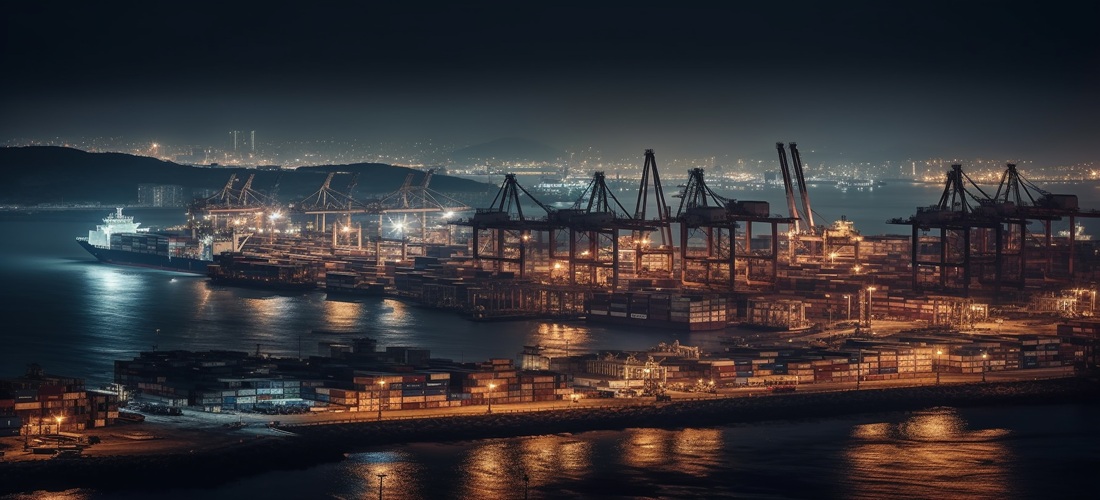
Federal Government’s Port Policy Drives Expansion of Foreign Trade
Jan, 10, 2025 Posted by Denise VileraWeek 202502
The Federal Government’s policy for the port sector, which includes 37 new port leases by 2026 and the concession of navigation channels at five major Brazilian ports, is positioning the country to expand its participation in international trade and strengthen Latin America’s role in global commercial relations. This assessment was made by the Minister of Ports and Airports, Silvio Costa Filho, when commenting on the results of Brazil’s trade balance, published by the Secretariat of Foreign Trade (Secex) of the Ministry of Development, Industry, Commerce, and Services (MDIC).
“In 2024, we recorded a 3% growth in export volume, and it’s important to highlight that 95% of Brazil’s international trade passes through our ports. Over the last ten years, port activity has increased by 34%, with 39% in public ports. The concession policy we’ve implemented prepares Brazil for future challenges, such as the expected increase in trade flows from the Mercosur-European Union agreement, which represents a quarter of the global economy,” stated the minister. According to a study by the Brazilian Trade and Investment Promotion Agency (ApexBrasil), the agreement could generate a US$ 7 billion increase in Brazilian exports in the short term.
The minister highlighted that the Ministry of Ports and Airports (MPor) is making significant investments in modernizing the port sector through the New PAC (Growth Acceleration Program), with a portfolio of R$54.7 billion, almost entirely funded by private investments. “We held auctions for 13 port units in the last two years, and we will have 37 more auctions until the end of 2026, ensuring new investments, modernizing structures, and making Brazilian products even more competitive.”
In addition to promoting the decentralization of foreign trade, benefiting mainly the North and Northeast regions, the policy anticipates significant efficiency gains in port operations with the concession of the navigation channels of five key ports: Paranaguá, Santos, Itajaí, Rio Grande, and Salvador. “Private management reduces bureaucracy, brings more agility to operations, and allows, for example, permanent and adequate dredging for the docking of large vessels,” explains Alex Ávila, National Secretary of Ports.
The numbers reinforce the relevance of the port sector. According to MDIC data, 82.2% of the total value of Brazil’s trade balance in 2024 (exports + imports), equivalent to US$ 492.5 billion, passed through the country’s ports and terminals. In volume, ports accounted for 97.2% of the total cargo transported, representing 967.5 million tons.
The Brazilian trade balance also posted substantial numbers in 2024, with the second-largest historical surplus reaching US$74.6 billion. Exports totaled US$337 billion, the second-highest value ever recorded, while the exported volume increased by 3%. Imports grew by 9% compared to the previous year, reaching US$262.5 billion, with a highlight being the 25.6% increase in capital goods imports.
With these initiatives, the Federal Government demonstrates its commitment to strengthening port infrastructure, which is essential to sustaining foreign trade growth and consolidating Brazil as a key player on the international stage.
Source: Ministry of Ports and Airports.
-
Grains
Jul, 01, 2021
0
StoneX cuts forecast for 2nd corn crop in Brazil to 60.45m tons after frosts
-
Ports and Terminals
Jan, 17, 2024
0
Port Terminals in Vila Velha Garner Increased Attention in Brazil’s Trade
-
Ports and Terminals
Oct, 28, 2024
0
Tianjin port emerges as key gateway for Latin American fresh, frozen imports
-
Ports and Terminals
Jun, 23, 2021
0
RS ports break new records



